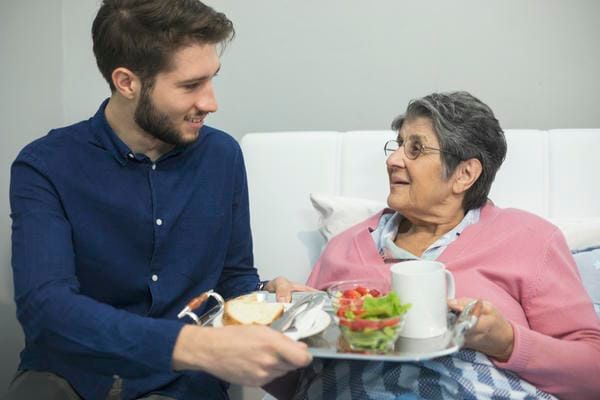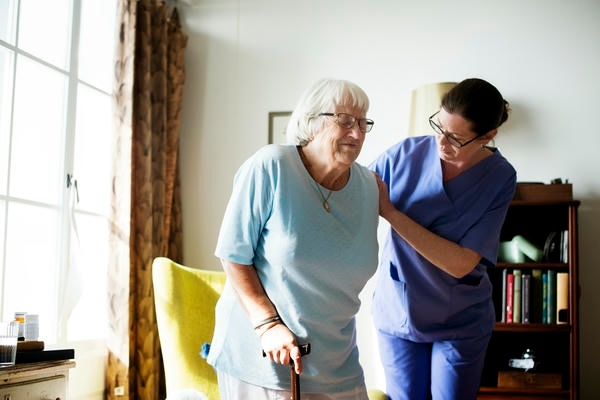In the soft glow of a sunny morning, a suburban kitchen comes to life with the gentle whistle of a kettle and the quiet rustle of pill bottles. This scene, familiar to many caregivers, marks the beginning of a daily ritual that carries immense responsibility – managing medications for an elderly loved one. It’s a task that requires precision, vigilance, and an unwavering commitment to the well-being of those we hold dear.
The Journey Begins: Sarah and Margaret’s Story
Meet Sarah, a devoted daughter whose life took an unexpected turn two years ago when her mother, Margaret, was diagnosed with hypertension and diabetes. At 82, Margaret’s warm smile belies the complex health challenges she faces, challenges that have thrust Sarah into the intricate world of medication management.
As Sarah lines up the array of pill bottles on the kitchen counter, a wave of anxiety washes over her. The responsibility weighs heavily on her shoulders – ensuring the right medications are taken at the right time, avoiding harmful interactions, and staying on top of refills. It’s a dance of details where every step matters, and the stakes couldn’t be higher.
The Overwhelming Reality of Medication Management
Sarah’s journey into this new realm began with a moment of overwhelming uncertainty. Staring at the multitude of medications spread across the dining table one evening, she found herself wondering, “How am I supposed to keep track of all these?” The thought of managing her mother’s complex medication regimen seemed like an insurmountable task.
But Sarah knew she had to find a way. Her mother’s health, comfort, and very life depended on it. With determination in her heart and love as her guide, Sarah embarked on a journey that would challenge her, educate her, and ultimately transform her approach to caregiving.
Building the Foundation: Creating a Comprehensive Medication Profile
Sarah’s first step towards mastering medication management came in the form of a simple yet powerful tool – a comprehensive medication profile. One evening, with Margaret’s medications spread before her, Sarah meticulously read each label, carefully noting dosages, schedules, and potential side effects.
This process, while time-consuming, proved to be invaluable. Sarah realized that this detailed list would serve as the cornerstone of her mother’s care. It would be a living document, one that would need regular updates and would play a crucial role in preventing medication errors.
The Importance of Detailed Record-Keeping
As Sarah compiled the medication profile, she began to understand the interconnected nature of her mother’s treatments. Each medication had its purpose, its specific instructions, and its potential risks. By documenting all of this information in one place, Sarah was creating a roadmap for her mother’s health journey.
She decided that this profile would include not just the basics of each medication, but also notes on why each was prescribed, any known interactions, and observations on how Margaret responded to them. This level of detail would prove crucial in communicating with healthcare providers and in making informed decisions about Margaret’s care.
Navigating Challenges: The Night That Changed Everything
Sarah’s resolve was put to the test one fateful night when Margaret experienced a frightening episode of dizziness and confusion. Heart racing, Sarah called the doctor, her voice trembling with concern. It was during this call that Sarah learned about a critical aspect of medication management in older adults – the increased risk of adverse drug reactions (ADRs).
“Adverse drug reactions are more common in older adults due to age-related changes in metabolism,” the doctor explained, his calm voice a beacon in Sarah’s sea of worry. This experience was a stark reminder of the delicate balance involved in medication management for seniors.
Understanding Adverse Drug Reactions in Older Adults
In the days that followed, Sarah delved into research about ADRs in older adults. She learned that as the body ages, it processes medications differently. Kidneys and liver function may decline, affecting how drugs are metabolized and excreted. This can lead to a buildup of medication in the system, increasing the risk of side effects and adverse reactions.
Moreover, Sarah discovered that the risk of ADRs increases with the number of medications a person takes. This concept, known as polypharmacy, was particularly relevant to Margaret’s situation. With multiple chronic conditions requiring various treatments, Margaret was at higher risk for drug interactions and adverse effects.
The Power of Partnership: Collaborating with Healthcare Professionals
Determined to get a better handle on her mother’s medication regimen, Sarah decided to consult with Margaret’s pharmacist, Mr. Roberts. This decision would prove to be a turning point in her caregiving journey.
The Pharmacist: An Invaluable Ally
Mr. Roberts, with his wealth of knowledge and patient demeanor, became an invaluable ally in Sarah’s quest to manage her mother’s medications effectively. During their first consultation, he provided insights into each of Margaret’s prescriptions, explaining potential interactions and offering practical advice on managing side effects.
“Remember to bring her medication list during each visit,” Mr. Roberts advised, his eyes twinkling with encouragement. “And don’t hesitate to ask questions about any new prescriptions. We’re here to help.”
This advice resonated deeply with Sarah. She realized that effective medication management wasn’t a solitary task but a collaborative effort involving healthcare professionals, caregivers, and patients themselves.
The Importance of Regular Medication Reviews
Another crucial lesson Sarah learned was the importance of regularly reviewing her mother’s medication regimen with healthcare providers. During one such visit, Margaret’s doctor helped simplify her medication schedule, reducing the risk of polypharmacy.
This process of medication review and simplification was eye-opening for Sarah. She saw firsthand how healthcare providers could assess the necessity of each medication, adjust dosages, and even discontinue treatments that were no longer beneficial. It was a delicate balancing act, ensuring that Margaret received the treatments she needed while minimizing the risks associated with multiple medications.
Empowering Through Education: A Two-Way Street
As Sarah’s knowledge about medication management grew, she recognized the importance of sharing this information with her mother. She believed that educating Margaret about her medications would not only empower her but also improve adherence to the prescribed regimen.
Creating a Culture of Understanding
Every morning, as they sat together enjoying their tea, Sarah and Margaret would go through the pill organizer. But this wasn’t just a rote exercise in taking pills. It became a cherished part of their routine, a moment of connection amidst the daily responsibilities.
Sarah would explain what each medication was for, why it was important to take it as prescribed, and what side effects to watch out for. These conversations not only educated Margaret but also reassured Sarah that her mother understood her treatment plan.
“You know, Mom,” Sarah would often say, her voice warm with affection, “understanding your medications is like having a map for your health journey. It helps us navigate the path together.”
Margaret would nod, her eyes bright with understanding. “I never thought I’d be learning so much at my age,” she’d chuckle. “But it makes me feel more in control, knowing what these little pills are doing for me.”
Adapting to Challenges: The Art of Problem-Solving
This open dialogue about medications also helped Sarah and Margaret tackle challenges as they arose. One afternoon, Sarah noticed that Margaret was having difficulty swallowing one of her larger pills. Instead of letting this become a barrier to medication adherence, Sarah remembered Mr. Roberts’ advice about open communication.
A quick call to the pharmacist led to a solution – they found a smaller, easier-to-swallow option for that particular medication. This experience reinforced for Sarah the importance of being proactive and seeking help when faced with medication-related challenges.
Tools and Techniques: Making Medication Management Manageable
As Sarah continued on her caregiving journey, she discovered various tools and techniques that made medication management more manageable. These practical solutions helped create a structured approach to Margaret’s care, reducing the risk of errors and easing the daily burden of medication administration.
The Humble Pill Organizer: A Game-Changer
One of the most helpful tools Sarah discovered was a simple pill organizer. This compartmentalized box, with sections for each day of the week and different times of day, became a cornerstone of their medication management system.
Every Sunday evening, Sarah would sit down and fill the organizer for the coming week. This ritual not only ensured that Margaret’s medications were organized and easily accessible but also provided Sarah with a regular opportunity to check supplies and note any prescriptions that needed refilling.
Harnessing Technology: Digital Reminders and Apps
In addition to physical tools like the pill organizer, Sarah embraced technology to help manage Margaret’s medication schedule. She set up digital reminders on her smartphone, alerting her to medication times throughout the day.
Sarah also discovered several medication management apps that allowed her to input Margaret’s entire medication regimen. These apps provided reminders, tracked adherence, and even offered educational information about each medication. While it took some time to set up, Sarah found that these digital tools provided an added layer of security and peace of mind.
The Rewards of Diligence: Celebrating Small Victories
As months passed, Sarah began to see the fruits of her labor. Margaret’s health stabilized, and the risk of adverse drug reactions decreased. They celebrated each small victory – a stable blood pressure reading, a good doctor’s report, a peaceful day without confusion or dizziness. These moments made the challenging journey worthwhile.
A New Normal: Finding Joy in Caregiving
What had once seemed like an overwhelming responsibility slowly transformed into a manageable part of their daily life. Sarah realized that effective medication management wasn’t just about the pills. It was about creating a routine that fit into their lives, building a support network with healthcare professionals, and empowering her mother through education.
More importantly, it was about ensuring Margaret’s safety and well-being, allowing her to enjoy her twilight years with dignity and comfort. The medication management routine, once a source of anxiety, had become a symbol of their bond – a daily reminder of Sarah’s love and dedication to her mother’s care.
Lessons Learned: Wisdom for Fellow Caregivers
Sarah’s journey into the world of medication management offers valuable insights for other caregivers facing similar challenges. Her experiences highlight several key lessons:
- Knowledge is power: Understanding each medication, its purpose, and potential side effects is crucial for effective management.
- Communication is key: Regular, open dialogue with healthcare providers, pharmacists, and the person receiving care can prevent problems and lead to better outcomes.
- Organization saves lives: Using tools like medication lists, pill organizers, and reminder systems can significantly reduce the risk of errors.
- Empower through education: Involving the person receiving care in understanding their medications can improve adherence and overall well-being.
- Be proactive, not reactive: Regular medication reviews and a willingness to address challenges head-on can prevent many medication-related problems.
- Celebrate the victories: Acknowledging improvements and successful management can provide motivation and emotional support for both caregiver and care recipient.
Conclusion: The Heart of Caregiving
Sarah’s story is a testament to the dedication and love that caregivers pour into their roles. The road of medication management is fraught with challenges, but with the right knowledge, tools, and support, it becomes manageable. By following the strategies and guidelines Sarah embraced, other caregivers can take control of medication management, ensuring the health and happiness of their loved ones.
The journey may be challenging, but the peace of mind that comes from knowing you are providing the best possible care is immeasurable. So, let’s navigate this path together, one step at a time, making caregiving a little easier and a lot more rewarding.
In the end, Sarah’s experience serves as a beacon of hope for caregivers everywhere. The complexities of managing medications can be daunting, but with determination, support, and the right strategies, it’s possible to ensure our loved ones’ well-being. Remember, caregiving is a journey filled with both challenges and triumphs. And every small victory, every moment of connection, every day of stable health, is a precious gift – a testament to the power of love, dedication, and proper medication management.
As the sun sets on another day of caregiving, Sarah and Margaret sit together, sharing a quiet moment. The pill organizer sits on the table, a symbol of their shared journey. In Margaret’s eyes, there’s a sparkle of gratitude, and in Sarah’s, a deep sense of purpose. This is the heart of caregiving – a delicate balance of responsibility and love, challenges and rewards, all woven together in the tapestry of family bonds.





